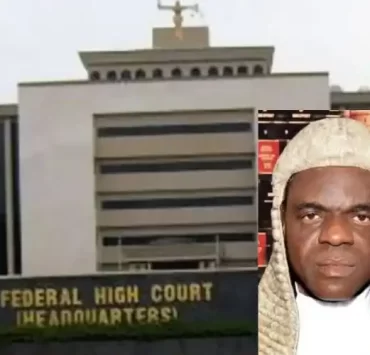S’Court to Hear FG’s Suit Against 36 Govs May 30 Over Local Government Autonomy

Lawyard is a legal media and services platform that provides…
The federal government has dragged the 36 State governors of the Federation before the Supreme Court over alleged interference in local government affairs in the country.
The Attorney General of the Federation (AGF) and Minister of Justice, Prince Lateef Fagbemi, SAN, filed the suit against the governors, seeking full autonomy for local government councils as third tier of government in the country.
In the suit marked SC/CV/343/2024, the AGF is praying the apex Court for an order prohibiting State Governors from unilateral, arbitrary and unlawful dissolution of democratically elected local government councils for the local government areas.
The AGF in the originating summons is also praying the Supreme Court for an order permitting the funds standing in the credits of local governments to be directly channelled to them from the Federation Account in line with the provisions of the Constitution as against the alleged unlawful Joint Accounts created by governors.
He also sought order of the apex Court stopping governors from constituting Caretaker Committees to run the affairs of local governments as against the constitutionally recognised and guaranteed democratically councils.
Besides, the federal government applied for an order of injunction restraining the governors, their agents and privies from receiving, spending or tampering with funds released from the Federation Account for the benefits of local governments when no democratically elected local government councils are put in place in the states.
The suit is predicted on 27 grounds among which are that the Nigeria Federation is a creation of the 1999 Constitution with President as Head of the Federal Executive arm of the Federation and has sworn to uphold and give effects to the provisions of the Constitution.
That the governors represent the component states of the Federation with Executive Governors who have also sworn to uphold the Constitution and to at all times, give effects to the Constitution and that the Constitution, being the supreme law, has binding force all over the Federation of Nigeria.
That the Constitution of Nigeria recognises federal, state and local governments as three tiers of government and that the three recognised tiers of government draw funds for their operation and functioning from the Federation Account created by the Constitution.
That by the provisions of the Constitution, there must be a democratically elected local government system and that the Constitution has not made provisions for any other system of governance at the local government level other than democratically elected local government council.
That in the face of the clear provisions of the Constitution, the governors have failed and refused to put in place a democratically elected local government system even where no state of emergency has been declared to warrant the suspension of democratic institutions in the state.
That the failure of the governors to put democratically elected local government system in place, is a deliberate subversion of the 1999 Constitution which they and the President have sworn to uphold.
That all efforts to make the governors comply with the dictates of the 1999 Constitution in terms of putting in place, a democratically elected local government system, has not yielded any result and that to continue to disburse funds from the Federation Account to governors for non-existing democratically elected local government is to undermine the sanctity of the 1999 Constitution.
That in the face of the violations of the 1999 Constitution, the federal government is not obligated under Section 162 of the Constitution to pay any State, funds standing to the credit of local governments where no democratically elected local government is in place.
Fagbemi SAN, therefore, asked the apex Court to invoke Sections 1, 4, 5, 7 and 14 of the Constitution to declare that the State Governors and State Houses of Assembly are under obligation to ensure democratically system at the third tier of government in Nigeria and to also invoke the same sections to hold that the governors cannot lawfully dissolve democratically elected local government coincils.
The Supreme Court has fixed May 30 for hearing of the suit.
Lawyard is a legal media and services platform that provides enlightenment and access to legal services to members of the public (individuals and businesses) while also availing lawyers of needed information on new trends and resources in various areas of practice.













